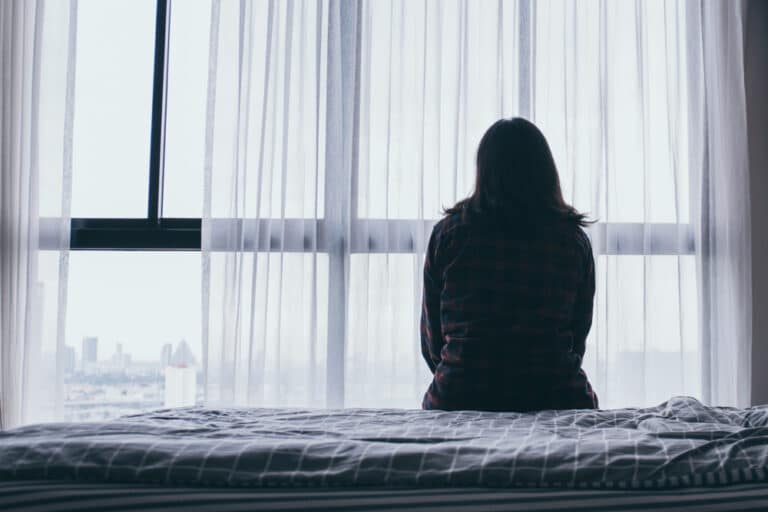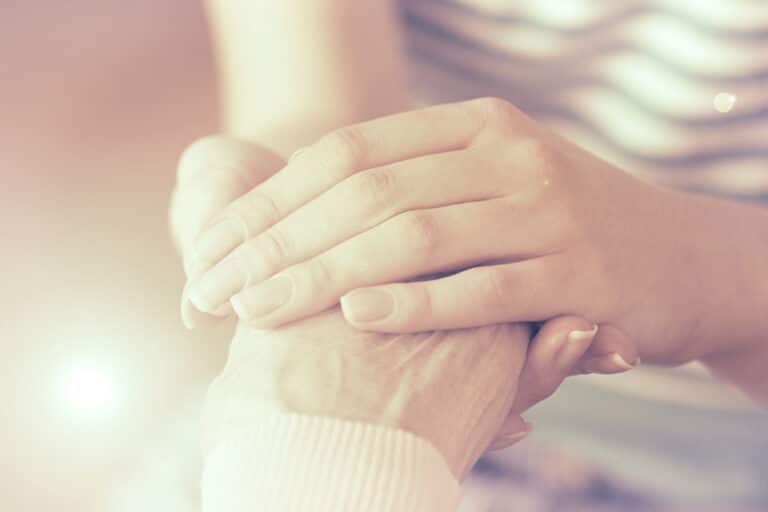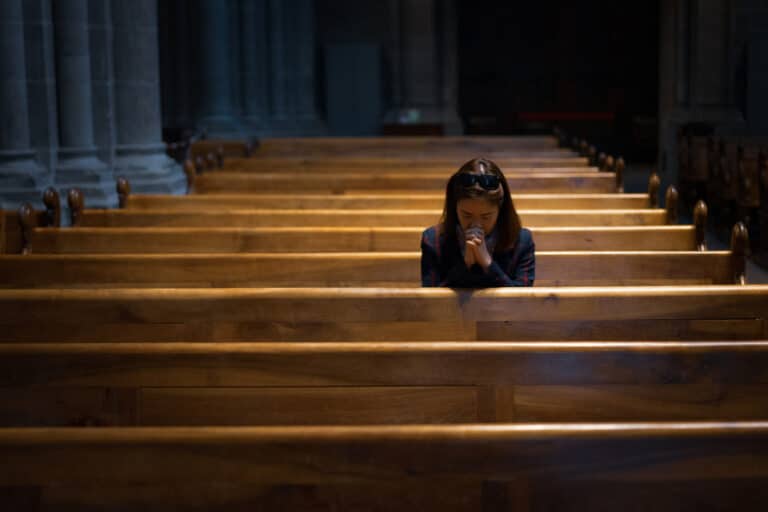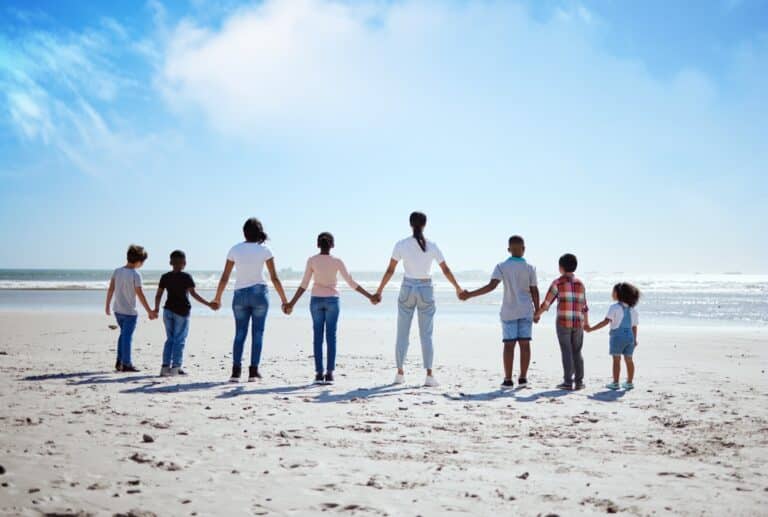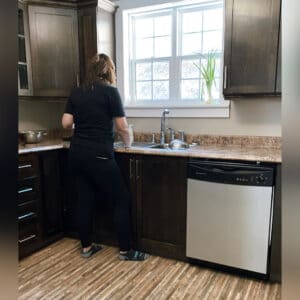I have been in full-time ministry alongside my husband for every day of our 16-year marriage. Before we were married, before we were engaged, before we even dated, I volunteered alongside him in ministry, having met him at church when I was only 16. I have kneeled and prayed with countless people in altars over all of these years, cried out to God with very real tears, utterances, desperation, faith. I have believed for others’ healing, bringing before God everything from colds to cancer, ear infections to infertility. I have held others and sobbed in empathy as we prayed for peace during anxiety, joy during depression, and strength during abuse. Not once when rattling Heaven’s gates with intercession did I ever doubt God’s ability to heal us, to hear us, to reach down and make whole what was broken.
Then a little over a year ago I went to bed one night, and by the next morning, I was disabled.
I’ve dealt with chronic illness for most of my life, and while there have been some pretty bad moments, a few trips to the hospital, and definitely more doctor’s visits than the average person, it was more like background noise than anything at the front of my mind. My body let me know if I’d pushed myself too far, and it always took me twice as long to get over every little bug I caught. I had aches and pains that were always there, but they had just become part of the tapestry, woven in, something I didn’t really notice as part of the whole.
When I woke up that January morning a little over a year ago, though, everything was different. Something had changed. Everything had changed.
My faith hadn’t changed. God hadn’t changed. But my body had changed . . . and drastically.
Over the course of the next several, several months, I sought out tests and treatment and specialists and, more than anything, a diagnosis. The extremity of my symptoms, weakness, and a little global pandemic have kept me otherwise bedbound. I can’t drive to church, let alone sit up through a service, so apart from online worship and sermons, I haven’t been able to participate in the work and relationships of my beloved church.
RELATED: To the Mom Battling Chronic Illness
I share on social media here and there, updating after some key appointments, sharing prayer requests, being fairly open about what this journey has been like. I try to stay as involved as I can, texting friends randomly throughout the day, checking in on others. I still share funny stories about my kids, things they say and do throughout the day, pictures of my dogs. I try to be encouraging. I try to be helpful. I try to maintain some semblance of being the same person they knew, the same person they haven’t seen in over a year. I want to keep this image in the front of their mind so they don’t forget about me.
Because I’m starting to forget me.
I believe in the healing power of Jesus, the infallible word of God, a God Who can do what He says He can do. I’ve believed every prayer I’ve ever cried out over another. I’ve easily prayed with the confidence of a Christian whose body was doing what it was supposed to, who was fearfully and wonderfully made, who was evidence of having been knit together with purpose. It’s easy to believe God for healing when you see the evidence of His work in your own life, right?
But today, here in this body, still stuck in this bed, I admit it’s much harder.
I feel the need to constantly reassure people that I still believe in God, that I still have faith in Him. I receive more than a few messages every week telling me if only I’d pray harder, trust more, believe fully, I’d be healed. I appreciate the prayers and scripture shared with me, but not the implications that my suffering is somehow the result of my own lack of faith, that this constant and chronic pain is my fault.
I’m terrified of being forgotten so I check in with more friends, ask about specific life events going on with them. I join more Facebook groups. I share more funny exchanges between my kids, post more pictures of the dogs.
But the background is always the same in every photo because I’m always in the same spot.
I’m fighting, scratching, clawing to stay at the front of my friends’ minds, but am deeply, deeply depressed at home. Yes, a Christian can battle depression. No, depression does not mean I’ve lost faith in my God. It means the circumstances I find myself in and the sheer number of things I’m grieving is overwhelming, and I’m allowed to be really, really sad about that.
But I’m a chronically ill Christian, and people of any walk aren’t too comfortable with others who complain a lot, or who are disabled, or who are out of sight and out of mind. People log onto social media to see dogs, not paragraphs about how many times a day I drop my head and sob silently.
I beg God several times a day to heal me, to spare me, to take away just a little bit of this suffering.
Please, Lord, give me back some of the independence I’ve lost, some of the activities I used to be able to do, send me to a doctor who will listen, who will care. Please, Father, impress upon a friend to check on me, to remember me, to really listen to me and not wrap up our conversation with a statement that I just need to trust God and it’ll all be fine.
I do trust God, but I have to be allowed to live in this life that is not all fine.
Chronically ill Christians exist. Disabled Christians exist. Depressed Christians, anxious Christians, addicted Christians, lonely Christians, the people sitting around you, the people posting to your feed—they are crying out to be heard, not preached to. They want listening ears and empathy, not cliches.
RELATED: Don’t Fix Me, Just Be My Friend
Being ill and sharing about it is not limiting God. Being ill and staying ill is not dismissing Him, either. Whether God ever heals me of this nightmare or not, He remains the same God I prayed to so fervently at those altars for so many years. And now he’s the God I silently sob to in the darkness of my bedroom, in the loneliness of my living room, in the isolation of a doctor’s office.
It’s hard being chronically ill. This is the most difficult thing I’ve ever been through in my life, hands down.
If I were to wake up healed tomorrow, I would still have years worth of emotional and mental scars to work on. This world is not my home, but this body is currently my personal hell, and it’s so difficult to carry the public expectations of what it means to be a Christian while being unable to carry myself to the mailbox.
If you know a chronically ill Christian, reach out. Really reach out. Don’t wait for updates to be shared, don’t ask if they’re feeling better, ask what they’re feeling and leave plenty of room for the truth to be spoken. You don’t need to offer any advice. You don’t need to have any answers. You can offer to have a favorite meal delivered.
But give room for the chronically ill Christian to be a chronically ill person. Let them get mad at God because honestly, I’m a little ticked at Him for my current situation while still being able to love and trust Him. Don’t chide them for depression, loneliness, grief—this is a complex, life-changing journey, and as much as you may think it shouldn’t, it changes the nature of our relationship with God. And that takes some time to figure out.
I’m a chronically ill Christian, and I’m terrified. I don’t know how long I’ll feel this way. I hurt—a lot, and my life has fundamentally changed. I’m depressed and grieving, I miss my life and my friends. I’m insecure and weak, aching and sleepless. I’m angry at God and desperate to see Him move. I haven’t stopped believing in what He can do, but I haven’t seen Him do it in me yet.
I’m a chronically ill Christian, and it’s really, really tough. So keep me in your prayers, please. Just don’t tell me I haven’t been saying mine enough.

If you liked this, you'll love our book, SO GOD MADE A MOTHER available now!
Order NowCheck out our new Keepsake Companion Journal that pairs with our So God Made a Mother book!
Order Now

